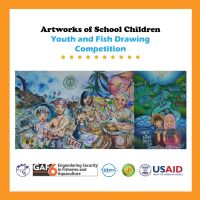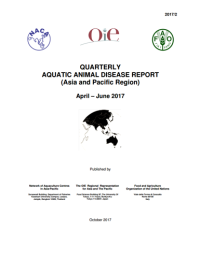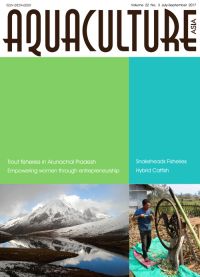An art book containing the winners of the Youth and Fish Drawing Competition, which was held during the 6th Global Symposium on Gender in Aquaculture and Fisheries (GAF), 4-7 August 2016, Bangkok, Thailand. Ten senior and seven junior high schools participated, with two students (male and female) from each school. The competition ended after three hours of drawing and painting. This was the first activity involving youth in raising awareness of gender to be conducted at a GAF event.
The National Institute for Occupational Safety and Health in collaboration with the SafetyNet Centre for Occupational Health and Safety Research (Memorial University) and the Food and Agriculture Organization of the United Nations (FAO), will be hosting the 5th International Fishing Industry Safety and Health Conference (IFISH 5) in St. John’s, Newfoundland and Labrador, Canada from June 10-13, 2018. Abstracts can be submitted electronically until 31 January, 2018.
The first ever Regional Training Course on Culture-based Fisheries in Inland Waters was held at Nha Trang University from 30 October to 8 November. The objective of the course was to provide participants with the skills to assist local communities to plan and manage culture-based fisheries. These practices are an example of a relatively simple and low cost technology that can deliver nutritional and economic benefits to rural communities, which often have few livelihood options.
In this issue:
Regional network on culture-based fisheries and stock enhancement; trout fisheries in the uplands of Arunachal Pradesh - resources and opportunities; empowering young Indian women through entrepreneurship development - opportunities and constraints; a view on murrel (snakehead) fisheries in India; hybrid catfish Clarias batrachus x Heteropneustes fossilis produced by farmers in West Bengal, India; Backyard fish based pig farming using low-cost feed in Arunachal Pradesh - a success story; NACA Newsletter.



